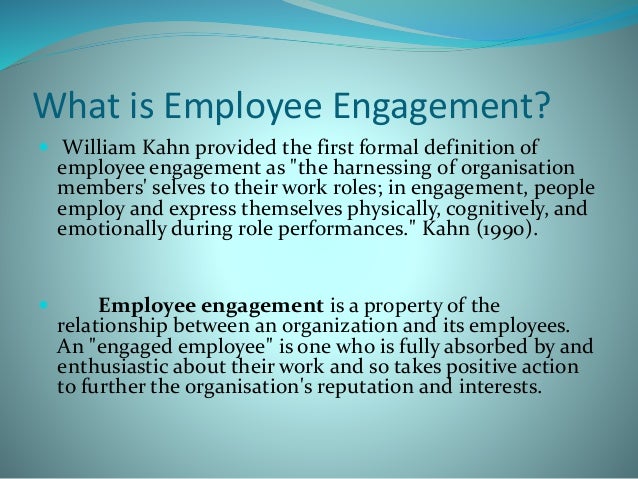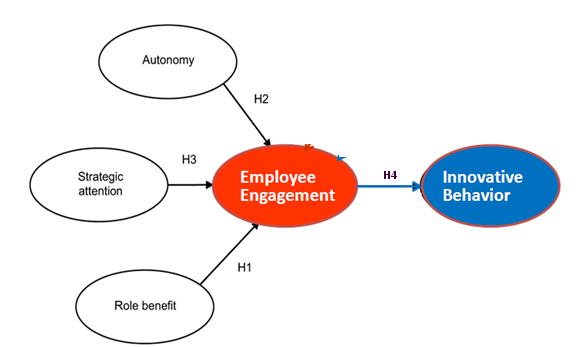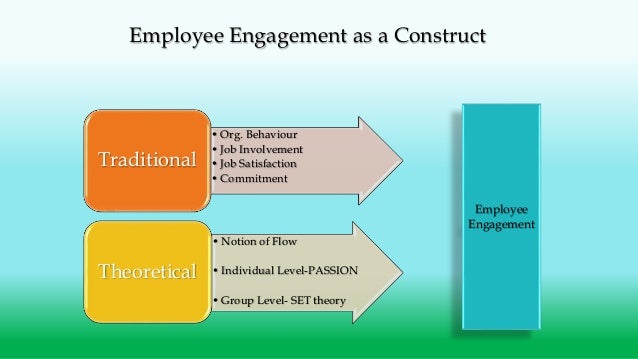Simple Kahns Theory Of Engagement

Step forward William Kahn the psychologist who developed and named the theory.
Kahns theory of engagement. He was particularly interested in the moments in which people bring themselves into or remove themselves from particular task behaviours. Student engagement has become problematic following the rise of mass and universal forms of higher education. Along with defining engagement Kahns primary aim was to identify the conditions that enable it to happen.
Significant attention has been devoted to identifying factors that are associated with higher levels of engagement but it remains the case that the underlying reasons for student engagement and indeed the notion itself of student engagement remain weakly theorised. This study aims to propose a multilevel moderated mediation model of transformational leadership corporate social responsible organization-based self-esteem and job engagement to detect Kahns theory and predict new product development performanceThis study used a longitudinal study over a six-month period to test the multilevel moderated mediation model. Kahns influence can be seen in todays organisational practices such as implementing wellbeing strategies physical engagement workshops to include staff in the values and strategies of the organisation cognitive engagement and developing management programmes that use coaching and active listening emotional engagement.
The cognitive aspect of employee engagement concerns employees beliefs about the organisation its. Along with defining engagement Kahns primary aim was to identify the conditions that enable it to happen. The range of contributors include Wilmar B.
Kahns concepts of engagementdisengagement were influenced by a combination of Alderfers 1972 and Maslows 1954 concept that individuals need self-employment and self-expression at work. Kahns theory of employee engagement hinges on three aspects -meaningfulness safety and availability. These are employees doing just enough to remain employed but offering none of their cognitive or emotional energy to the job.
They are what you might call clock punchers. Kahn 1990694 defines employee engagement as the harnessing of organization members selves to their work roles. Engagement is an intrapersonal interpersonal and socialgroup process and an outcome that promotes enhanced engagement learning and transformation that is thriving and flourishing Engagement is a short-term process and outcome and needs continuous nurturing in all persons.
These are employees doing just enough to remain employed but offering none of their cognitive or emotional energy to the job. Disengagement Kahn described work disengagement as employees cognitive and emotional withdrawal from their job and the organization. This explains why engagement occurs when a person is able to harness their full selves to their work Young2015.













